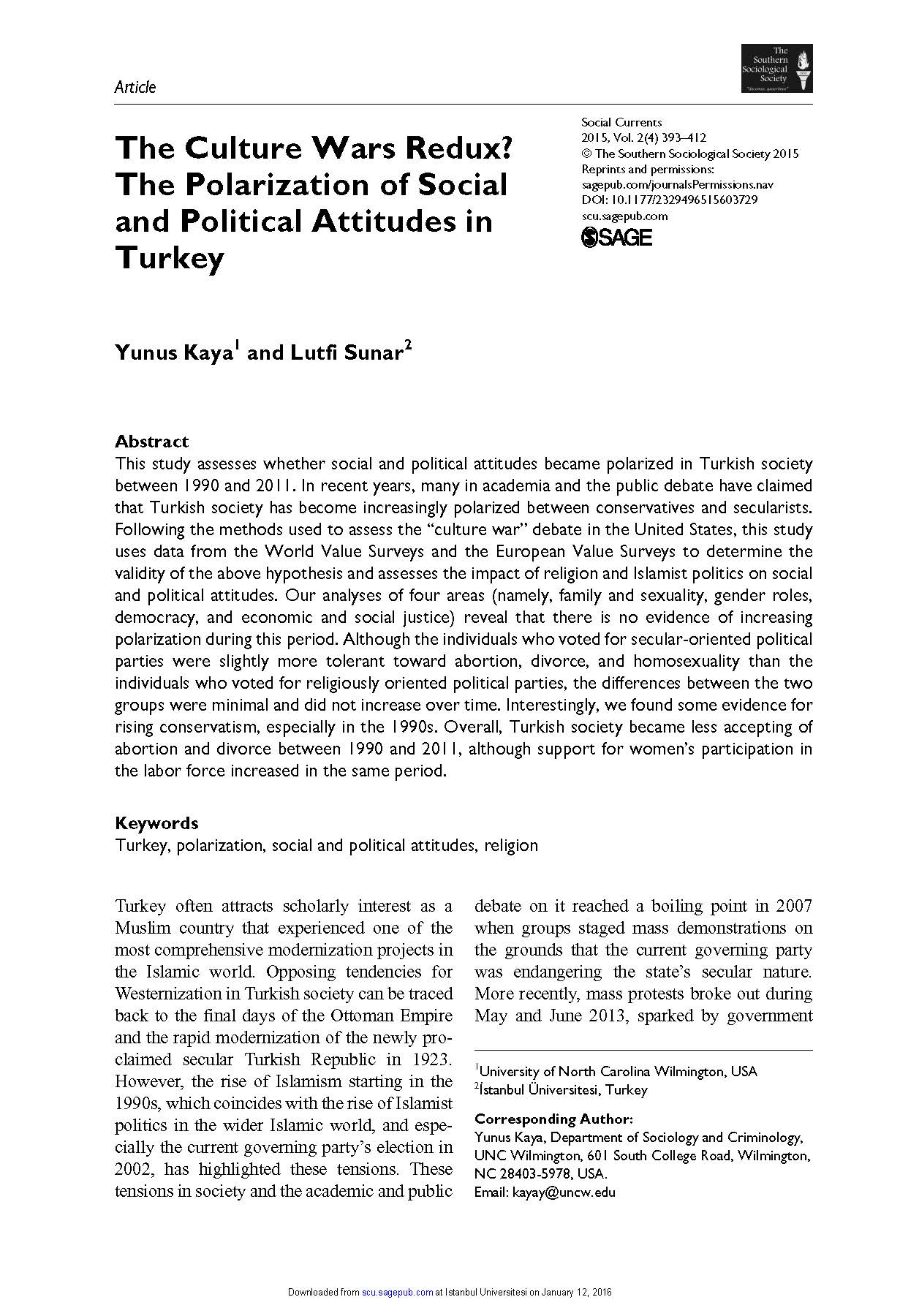The Culture Wars Redux: The Polarization of Social and Political Attitudes in Turkey
This study assesses whether social and political attitudes became polarized in Turkish society between 1990 and 2011. In recent years, many in academia and the public debate have claimed that Turkish society has become increasingly polarized between conservatives and secularists. Following the methods used to assess the “culture war” debate in the United States, this study uses data from the World Value Surveys and the European Value Surveys to determine the validity of the above hypothesis and assesses the impact of religion and Islamist politics on social and political attitudes. Our analyses of four areas (namely, family and sexuality, gender roles, democracy, and economic and social justice) reveal that there is no evidence of increasing polarization during this period. Although the individuals who voted for secular-oriented political parties were slightly more tolerant toward abortion, divorce, and homosexuality than the individuals who voted for religiously oriented political parties, the differences between the two groups were minimal and did not increase over time. Interestingly, we found some evidence for rising conservatism, especially in the 1990s. Overall, Turkish society became less accepting of abortion and divorce between 1990 and 2011, although support for women’s participation in the labor force increased in the same period.
Özellikleri
Atıf: Kaya, Yunus and Lütfi Sunar. “The Culture Wars Redux: The Polarization of Social and Political Attitudes in Turkey.” Social Currents 2.4 (2015): 393–412.


